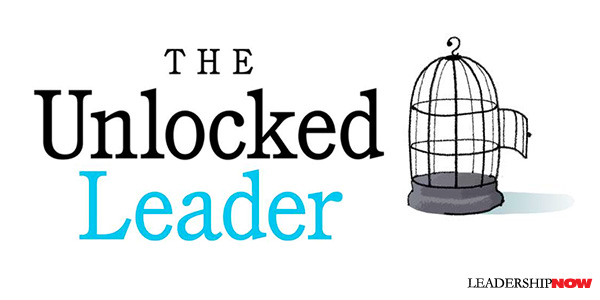 |
 |
10.13.23

The Unlocked Leader
TOO MANY LEADERS have not made the journey from their head to their heart. It is not uncommon to assume that to be effective, leaders must be superhero leaders. That is, they must be infallible, unflappable, and fearless. Hortense Le Gentil writes to dispel that notion in The Unlocked Leader and become what she terms human leaders. Hiding behind their superhero leader façade, they’re not sure how they can connect differently with people at work. They don’t know how to be vulnerable, authentic, and empathetic in a way that unleashes the best in others. In short, they don’t know how to be human leaders. The transformation from superhero leader to human leader is a deep inside job and not the application of gimmicks and smooth words. It becomes a way of being both in and out of work. It begins with understanding the mindsets that do not serve us well —mindtraps—then shifting those mindsets and building new ones. Le Gentile takes us through that transformative process in depth. There is no shortcut. She writes that there are four practices that strengthen our ability to connect with others: Learn to Listen More and Speak Last Human leaders have moved from quarterback to coach. “Their job is no longer to handle the ball and score points; it is to inspire and support the players to give the best of themselves and make sure they play as a team so together they can score points.” This is most often facilitated by listening more and talking less. Positioning yourself to speak last also encourages listening more. Cultivate Your Empathy Empathy is the “ability to connect to other people’s emotions or experience.” To see the world through their eyes. Focus on commonalities and not differences. Empathy also means understanding how you affect others. “Your empathy practice also includes adjusting what you say, how you say it, and what you do accordingly.” At the same time, she cautions that “Being able to connect to someone else and experience the world from their perspective doesn’t mean accepting or excusing everything they do or say. Empathy doesn’t exclude showing tough love when necessary.” Practice and Role-Play Conversations Connecting with others on a new level may feel awkward at first. “Role-playing various scenarios eases the anxiety of the unknown and makes it easier to react in the best possible way in the heat of the moment.” Eventually, it will become who we are. Learn to Set and Maintain Boundaries A lot has been said about the value of authenticity and vulnerability in leadership to better connect with others. But vulnerability without boundaries is not vulnerability. She writes, “Opening a door so people at work can peek into our head and our heart, however, doesn’t mean sharing all our emotions and all our thoughts with everybody. It also doesn’t mean abandoning our privacy or forcing colleagues and team members to let go of theirs.” To establish proper boundaries, the following questions are helpful: 1. Is this relevant? Why are you telling the story? What is the message you are trying to share? 2. It is helpful? A key question. “Effective human leaders do not lose sight that the point of being authentic and vulnerable is to support, encourage, and motivate people by creating and strengthening human connections. Offloading your anxiety or frustration onto your colleagues in the name of authenticity may make you feel better, but that kind of authenticity isn’t helpful to anyone else and therefore defeats the purpose.” She adds, “Sharing about yourself without showing interest in, and care for, others doesn’t strengthen human connections: it only screams, ‘me, me, me!’” 3. Am I undermining my competence as a leader? “Saying you’re out of your depth or worried about the future is likely to fill your team with anxiety and make them wonder whether you should be in charge and why they should follow your lead. Asking for help to become better at what you do, however, sends the message that you’re not perfect but that you are keen to keep improving.” 4. Am I still feeling professional and comfortable? “If you’re sharing more than you’re comfortable with, you’re no longer authentic. Instead of being yourself, you become someone who’s trying too hard to be vulnerable—which, ironically, comes across as painfully inauthentic.” Human leadership doesn’t start and stop at the office: It happens everywhere and in each moment. It also happens at home, and those who’ve embarked on the journey can attest to the enormous difference it has made in their personal life. 
Posted by Michael McKinney at 10:26 AM
|
BUILD YOUR KNOWLEDGE
 

How to Do Your Start-Up Right STRAIGHT TALK FOR START-UPS 
Grow Your Leadership Skills NEW AND UPCOMING LEADERSHIP BOOKS 
Leadership Minute BITE-SIZE CONCEPTS YOU CAN CHEW ON 
Classic Leadership Books BOOKS TO READ BEFORE YOU LEAD |